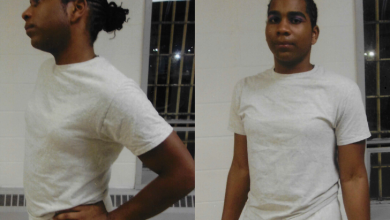It is no secret that we use dish soap in many different situations. Dish soap is a fast, easy, cheap and effective tool that we find widely used in everyday life. Dish soap is incredible multitasking ‘tool’ in our homes, just grab a sponge, put some dish soap and you are ready to do a lot of amazing things.
But you must have in mind that that dish soap is not a soap, but a detergent. That’s why we simply must not use dish soap in some situations. Experts warn that dish soap is potentially dangerous if used in the next few situations and what to use instead.
1. Your hair
Love the way dish soap gets even your greasiest casserole dishes squeaky clean? That’s exactly why you should never sub dish soap for shampoo. “You end up completely stripping your hair of all its natural oils,” says Amelia Trammell, a colorist at Local Honey in Nashville. “That is especially terrible for anyone who uses hair color because healthy hair retains color better than damaged hair.”
What to use instead: Treat your locks to a mild, sulfate-free shampoo (and conditioner) which will keep color from fading.
2. Hardwood floors
The wood floors in your home are meant to take a pounding, but improper cleaning can leave them scratched and dingy. To clean them the right way, start by sweeping or vacuuming to remove sand and grit that could leave microscopic scratches in the finish. Next, wet-mop the floors with a gentle cleanser made specifically for wood flooring. “It’s important to choose the right cleaner for hardwood floors,” says Bruce Johnson, a DIY wood restoration expert with Minwax. “Your soapy dishwashing water won’t do it—and can leave behind a film.”
What to use instead: Opt for a product which cleans all kinds of hardwood floors.
3. Dishes…when they’re in the dishwasher
Dish soap plus dishes should always equal success, right? Wrong. It turns out that the lather clouds that work so well in your sink are really bad for your dishwasher, which wasn’t built to handle all those bubbles. “Bosch Home Appliances recommends using only detergent specifically designed for dishwashers, which is formulated to provide the best cleaning experience for your dishes and utensils,” says Richard Tarrant, director of dish care for Bosch, which makes, among other things, dishwashers. “We also encourage users to not use hand-dishwashing products in the dishwasher in order to avoid damage to the dishwasher or dishware.”
What to use instead: Use only detergent specifically designed for dishwashers, there are many brands out there.
4. Your face
You might think that dirt-busting dish soap is a great, low-cost way to remove a day’s worth of makeup, sweat, and oil, but, according to skin professionals, using it on your face is a bad idea. “Dish soap removes oil, which is what protects skin, especially in the wintertime,” says South Carolina–based dermatologist Greta Zimmerman, DO.
What to use instead: “Go with a mild cleanser, and only use it where you need it.
5. Leather
Your skin isn’t the only thing that needs to hold onto its natural oils. Strip away the natural emollients in leather and you might find your good leather shoes, purses, and car seats cracking under the pressure. “Dish soap is great for cleaning up a pair of dirty sneakers—I use it on my kids’ shoes all the time,” says David Mequita, a vice president with the Leather Spa in New York. “But not on fine leather. It could be too harsh.”
What to use instead: Experts suggest wiping away dirt with a damp cloth, then applying a moisturizing product to keep leather supple.
6. Your dog
Wondering how to deal with the stinky, dirty, smelly mess that used to be your adorable pooch? Don’t reach for the dish soap. It’s not that it isn’t safe. In fact, Dawn dish soap is used by marine rescue organizations to remove environmental oil and tar from seals and sea birds. But those oil-removing superpowers that make it so effective against industrial muck are too harsh for regular use and could dry out your dog’s skin and coat. Grabbing your shampoo isn’t a good idea, either. Since it’s formulated for a human’s pH level, it could irritate your dog’s skin.
What to use instead: “The average dog owner should stick to shampoo designed for dogs,” says Robin Illchuk, who shows, raises, and breeds Portuguese Water Dogs. “If your dog is super greasy, add a drop or two of Dawn, but be prepared to rinse for ten minutes so you don’t leave residue in the dog’s coat.”
7. Your plants
The Internet is rife with recipes for DIY formulas for insecticidal soaps, and for good reason—they’re inexpensive, safe for the environment, and won’t leave residue on your plants. According to gardening experts, though, many dish soaps are not only too harsh to use on plants, but they’re also often not all that great at warding off pests either. True insecticidal soap is surprisingly kind to plants and deadly to insects.
What to use instead: Chemical free and organic products
8. Silk clothing
Do you really need to buy a special detergent to clean delicate fabrics like silk? Unless you’re willing to risk damaging your best silk blouse, the answer is yes.
What to use instead: “Silk is a protein similar to the protein that makes up our hair, so you need to use a fabric-specific formula that treats this fabric with care,” says Gwen Whiting and Lindsey Boyd, cofounders of The Laundress.
9. Your cast-iron frying pan
Cast-iron aficionados know that before using their new pans for the first time, they need to spend time infusing them with oil to create a slick, remarkably non-stick surface. Over time, that finish, which is called seasoning, only gets better. Dish soap, which is made to remove grease, would remove that coating.
What to use instead: Experts recommend cleaning pans with just a scrubber (or coarse salt) and water. If you end up needing an assist, it’s OK to treat your pan to an occasional soapy scrub, but stick to eco-friendly dish soaps (which are less effective at removing oil) and be sure to dry and re-oil your pan immediately.





Leave a Reply
You must be logged in to post a comment.